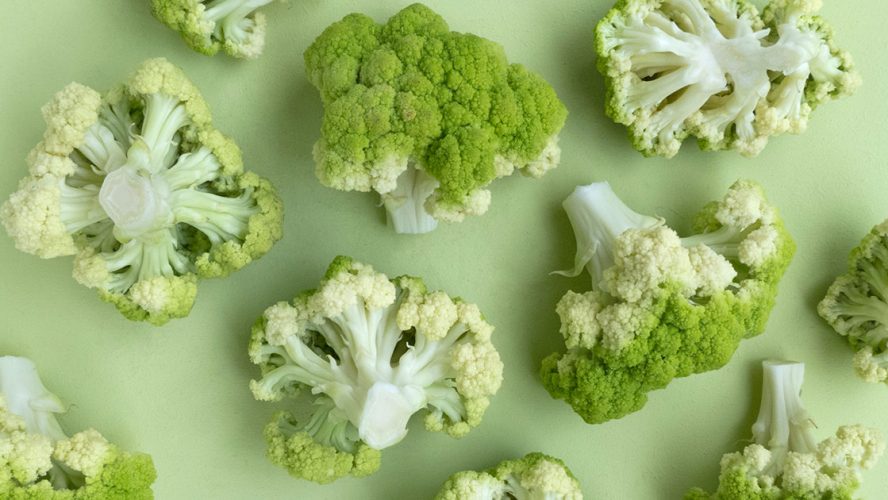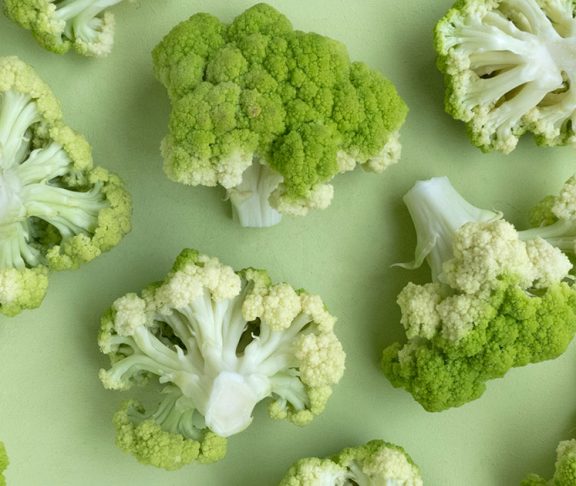There’s good news on the prostate health front: The foods you eat — and those you avoid — can make a difference in your risk for prostate cancer. Science shows you can eat your way to a healthier prostate.
“Lifestyle modifications, including diet, have been convincingly shown to reduce the risk of the onset and progression of cancer, including prostate cancer,” said Jonathan W. Simons, M.D., President and CEO of the Prostate Cancer Foundation (PCF). “Thanks to advances in understanding metabolism and gene mutations, the concept of using food as medicine is finally converging. Men who adopt these healthier lifestyle changes can help reduce prostate cancer risk or death from prostate cancer.”
When it comes to protecting prostate health, you have lots of dietary choices. PCF’s guide, The Science of Living Well, Beyond Cancer, recommends a diet high in brightly colored vegetables, low in sugar and processed carbohydrates, and moderate amounts of animal-based protein (instead choosing prostate-healthy protein sources like beans, nuts, soy, and certain fish).
The common theme behind many of these foods? They can help to lower long-term (chronic) inflammation in the body. Research suggests inflammation is a key driver of prostate cancer.
Here are the top five foods to eat for a healthy prostate:
Cruciferous vegetables
Think of cabbage, broccoli, kale, bok choy, cauliflower, Brussels sprouts and other cruciferous vegetables as prostate superfoods. They are high in vitamins, minerals, and antioxidants, which protect against cellular damage. Studies suggest that eating cruciferous vegetables can lower inflammation, which is related to your risk of developing prostate cancer. Broccoli, in particular, is high in a phytochemical (phyto means “plant”) called glucoraphanin, which research shows converts to substances in the body that can potentially prevent cancer cell growth.
Berries
Strawberries, blackberries, blueberries, and raspberries are great sources of antioxidants known as anthocyanins. Chronic inflammation, which can put you at risk for many diseases, including cancer, results in an excess of “free radicals” — molecules that can damage cells and DNA. Damaged DNA cannot replicate properly, potentially leading to cancerous changes in cells. Antioxidants like the anthocyanins in berries help to neutralize free radicals and flush them from the body.
Fish
Research has shown chronic inflammation within the prostate can fuel cancer. Certain fish, especially cold-water fish like salmon, sardines, and trout, provide “good fats” that don’t trigger inflammation the way saturated animal fats (like beef fat) do. But it seems not all fish have equal cancer-fighting properties. In one study, Harvard scientists Fred Tabung, Ph.D., M.S.P.H., and Edward Giovannucci, M.D., Sc.D., looked at the relationship between diet and inflammation, and found that canned tuna, shrimp, lobster and scallops were more inflammatory than “dark meat” fish like salmon and red snapper.
Cooked tomatoes
Tomatoes are another prostate health superfood. Their bright red color comes from lycopene, part of the class of carotenoid antioxidants that can protect cells from damage caused by free radicals. Lycopene accumulates in the prostate, which helps explain why tomatoes have been linked to a lower risk of aggressive prostate cancer. Cooking tomatoes loosens the bonds in the cell walls of tomatoes, making it easier for the body to access the powerful antioxidant and send it to the prostate. A bonus tip: Cook tomatoes in olive oil to help the body absorb more cancer-busting lycopene.
Coffee and tea
A lot has been said about the benefits of green tea as a source of antioxidants called catechins, which are believed to be anti-carcinogenic and anti-mutagenic (preventing healthy cells from mutating into cancer). A review of several published studies suggests men who drink up to seven cups of green tea per day have a decreased risk of prostate cancer. A growing number of studies also suggest regularly drinking one or two cups of coffee a day may help protect against aggressive forms of prostate cancer. The key, though, is to limit your use of sugar, which is at the top of the list of what NOT to eat for a healthy prostate.
Take action for good prostate health
Want to learn more about the latest science on what to eat — and not eat — to protect against prostate cancer? Check out the Prostate Cancer Foundation’s wellness guide The Science of Living Well, Beyond Cancer.

